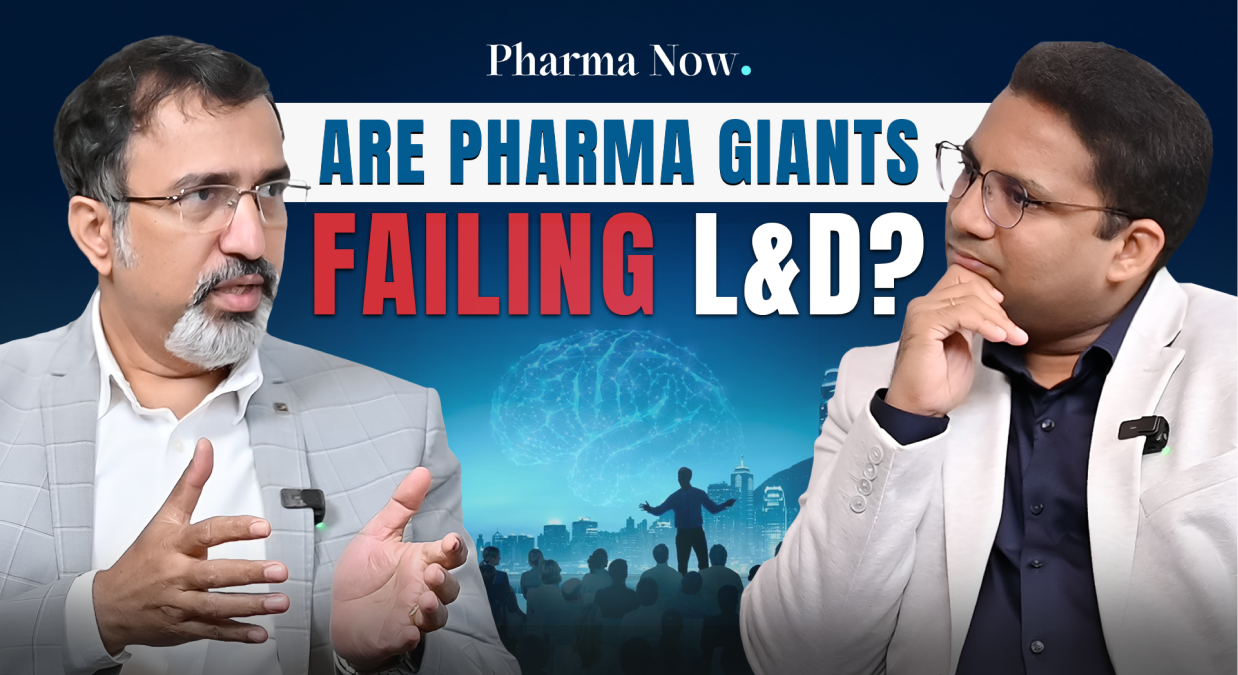Redefining Pharma Training: Rajesh Bhattacharjee Shares His Transformational Vision For Learning & Development At FDC Limited
FDC’s Rajesh Bhattacharjee shares his PAC model and vision for pharma training that drives business growth and employee retention.
Breaking News
Jul 04, 2025
Simantini Singh Deo

Mumbai, Maharashtra, India, June 27, 2025 — A newly released video features an insightful and thought-provoking conversation with Mr. Rajesh Bhattacharjee, Training Head at FDC Limited, the pharmaceutical company renowned for trusted products like Electral. In the interview, Rajesh offers a detailed account of his professional journey, from starting in pharmaceutical sales to becoming a global training leader while highlighting how structured learning, meaningful relationships, and strategic innovation can transform training into a business driver.
His career began in frontline sales, where he gained ground-level insights into customer engagement and product positioning. Over time, his passion for learning and mentoring others led him into the field of training. With experience across multiple roles in sales leadership, national-level training, and global learning management, he has developed a comprehensive perspective on what effective training looks like in a pharmaceutical context. At FDC Limited, he now leads initiatives that impact teams across departments and geographies, driving skill development at every level of the organization.
A centerpiece of the conversation is his introduction of the PAC Model, a strategic framework that categorizes training interventions into Prospective, Augmentative, and Curative. Each category is designed to align with specific business needs: prospective training focuses on building new foundational skills, augmentative training enhances existing competencies, and curative training addresses performance gaps or organizational challenges. He explains how this model helps L&D teams plan and deliver training in ways that are targeted, relevant, and impactful, whether through physical, digital, or hybrid delivery modes.
Mr. Rajesh underscores that training should not be limited to sales teams. In fact, one of the major gaps he identifies in the industry is the lack of formal training in areas like manufacturing, R&D, regulatory compliance, and leadership development. He advocates for pharma companies to invest in well-rounded training ecosystems that support growth across all departments, particularly for plant personnel who often miss out on structured learning opportunities. He believes that only by empowering every function can organizations ensure long-term compliance, innovation, and competitive advantage.
Interpersonal relationships, according to Rajesh, are the “glue” that holds teams and organizations together. He emphasizes that technical training must be complemented by soft skills development, especially in collaborative industries like pharma where departments must work seamlessly. His team at FDC has conducted multiple internal surveys, revealing a compelling insight: employees prioritize learning and development over salary and company reputation. This finding highlights the importance of L&D as a tool not only for capability-building but also for attracting and retaining top talent, especially among Gen Y and Gen Z professionals.
Mr. Rajesh also reflects on the future of training and the importance of striking a balance between traditional and digital approaches. While technologies like AI, virtual instructor-led training, and e-learning platforms have revolutionized the learning landscape, he cautions against adopting them blindly. Training, he asserts, should always be tailored to the audience and business context. The goal is to integrate technology meaningfully, not to replace human interaction but to enhance accessibility, scale, and personalization.
One of the most critical components of Rajesh’s approach is Training Needs Analysis (TNA). He advocates for a data-driven process that involves input from participants, managers, and business leaders. By using digital tools like pre-training questionnaires, his team ensures that every program is built with clarity on who needs what, why, and how best to deliver it. This methodical design not only enhances engagement but also improves training effectiveness and return on investment.
In his role, Mr. Rajesh Bhattacharjee has also faced challenges related to stakeholder expectations. Many business leaders, he notes, come with fixed ideas about training methods, some preferring only classroom training, others only digital formats without considering the learning objectives. Through patient dialogue and by demonstrating the logic of the PAC model, he has been able to align stakeholders with evidence-based training strategies, effectively bridging the gap between business needs and learning delivery.
FDC Limited’s recognition as the recipient of the Best Diverse Training Team of the Year Award stands as a testament to Rajesh’s vision and execution. It reflects the organization’s commitment to building a learning culture where every employee, regardless of role or location, can grow and contribute meaningfully to business success.
This conversation is more than a professional reflection, it is a practical guide for L&D leaders across the pharmaceutical industry. Rajesh Bhattacharjee’s structured, strategic, and people-centric approach to training offers a model that can be replicated by organizations seeking to elevate their training function from a cost center to a strategic enabler of business growth.
To watch the full video and gain deeper insights into the PAC model and future-focused pharma training, click here!
